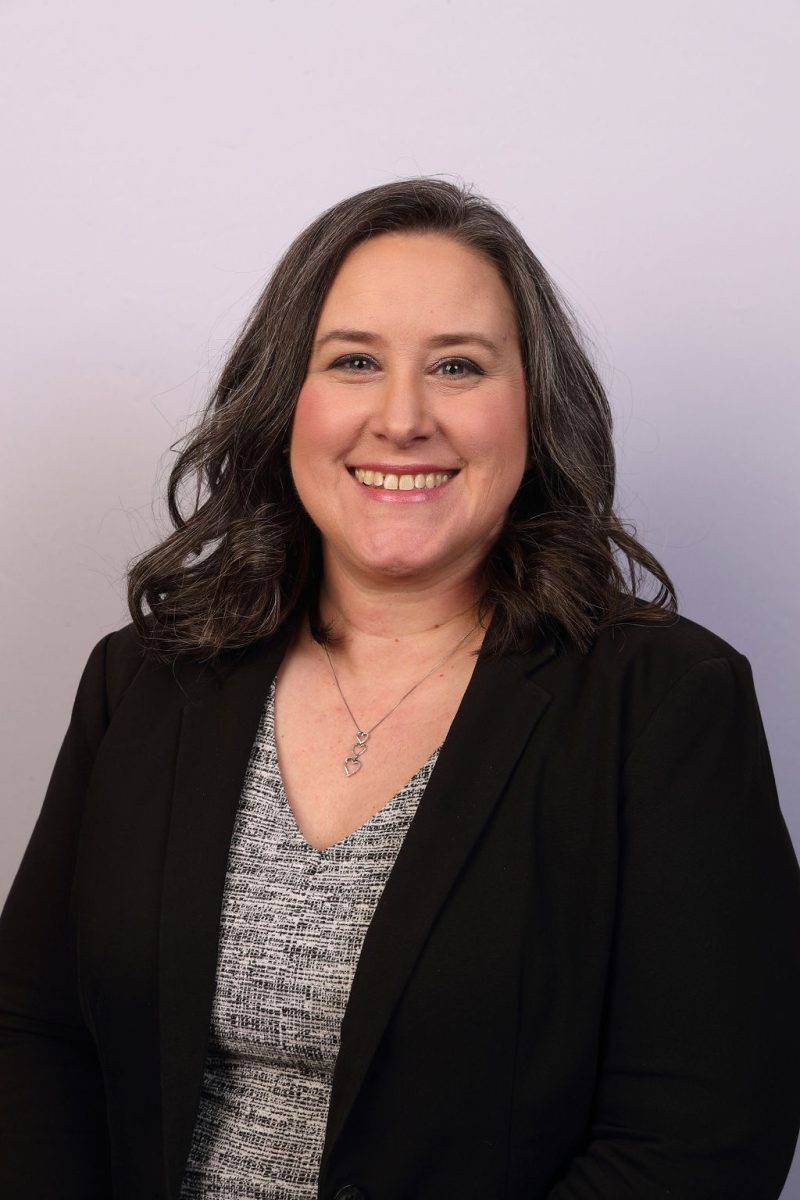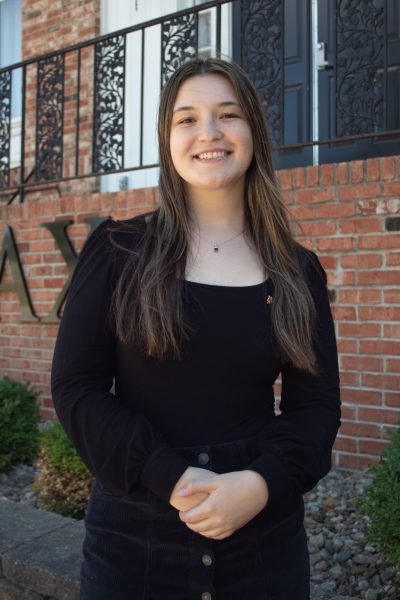Balancing a work-life balance is challenging, and the new Interim Dean of the College of Arts and Sciences, Dr. Jennifer Schroeder, knows this challenge all too well.
Before Schroeder took the position of Interim Dean of the College of Arts and Sciences, she was a busy Millikin professor, the Director of Academic Effectiveness, and the Director of the School of Biological & Environmental Studies.
Schroeder does not shy away from a busy schedule.
Schroeder has three children who are heavily involved in athletics, and her oldest, Ryne, is a freshman cross country runner at Millikin. Keeping a schedule is imperative for her success in managing her duties as a mother and a Millikin faculty member.
“It’s really important to make sure that I know when everything is, so I’ve tried to put all of Ryne’s meets on my calendar, and then for my younger two, their sports each have calendars that I can then integrate,” Schroeder said. “So I have a Google calendar with all the stuff, and then I have my Millikin calendar, and I import it so everybody’s kind of color-coded something or other, so I know which person is supposed to be where on what days.”
With this semester bringing in a massive freshman class, I’m sure this schedule has come in handy.
“The challenge is we [had about] 540 students this summer that needed schedules and questions about if they’re coming, and they’re not sure of their major, or they decide they want to change their major, so trying to make sure that they know who to contact and when, and making sure everyone is happy with their schedule,” she said.
Not all 540 students are members of the School of Arts and Sciences, but that does not diminish the work that Schroeder had to put in preparing for this school year.
But Schroeder’s main focus isn’t on the students anymore; she must switch her focus to the professors she is overseeing.
“I’ve really been enjoying… getting a chance to work more with faculty across the college, instead of just in my area of expertise, and also really working with a lot of the new students and trying to make sure that they’re well supported as they start here,” she said.
The transition from being a professor whose priority is the students to being a dean of a college whose priority is the professors is a change, but Schroeder is working to make sure that professors know she is there to support them whenever they need help.
“The one thing that I’ve been trying to make clear is that my door is open, and I want [the faculty] to come talk to me when there are questions, concerns, [or] issues going on so that we can try to solve them as best we can,” Schroeder said.
Dr. Julie Bates, the Director of the School of Writing, Languages, and Cultures, is one of the faculty members that Schroeder is working to support. Bates thinks that Schroeder’s transition from professor to dean has gone swimmingly.
“I would say at this point… because Dean Schroeder was a director and was very familiar with a lot, especially with accreditation and assessment and all the other things she’s done, I think that has made [the transition to her as the dean] relatively seamless… just because she was so familiar with all the things that we need and do and everything already,” Bates said.
Bates isn’t the only one who thinks that Schroeder is succeeding in her interim role. Former Dean of the College of Arts and Sciences and the new Interim Provost, Nancy Curtin, also applauds Schroeder for her work so far.
“[Schroeder has] done a good job of hitting the ground running, trying to get a handle on this summer,” Curtin said. “It’s a good problem to have, but [Schroeder was] working with our directors and faculty and trying to increase course enrollments to accommodate a larger incoming class than we planned.”
But now that the school year is in full swing, Schroeder must plan for the future. A large issue she wants to tackle is the College of Arts and Sciences’ identity.
“I really want to make sure we have the voice of the faculty to figure out how to best present [the College of Arts and Sciences] so people know who we are,” Schroeder said.
The College of Arts and Sciences’ specialties are incredibly diverse compared to the other colleges here at Millikin. So the task of finding an identity for the broad majors they offer is challenging.
“I think one of the underlying themes, though, is what we do regardless of major is really foundational to how students think [and provides them with] skill sets that are absolutely critical to their success in their career after Millikin,” Schroeder said. “That’s one of the reasons why so many of our university studies courses are housed within this college.”
Schroeder has done a great job “hitting the ground running,” as Curtin said, but balancing her new work schedule with life still isn’t easy. Schroeder, unlike many professors that I know, finds it beneficial to always be “plugged in” to work.
“Usually, I try to stay pretty plugged in most of the time,” Schroeder said. “Usually, I have a few hours where I’m not as available when we’re at a meet or a game or practice, and I’m taking kids back and forth; [I’m] usually not as available then, but I always try to make sure that I double-check things in the evenings, even if it’s just reading through emails.”
Schroeder prioritizes finding time for work and family, but she also finds time for personal free time.
“It’s been a little bit easier [finding time for myself] with not also teaching, because I’ve also usually had a really heavy teaching load,” Schroeder said. “Part of it is just finding little bits of time here and there, sitting down, and just snuggling up on the couch.”
No one can ever find a perfect work-life balance; it is always an ongoing learning experience, just like Schroeder’s transition from director and professor to dean is a continuous learning experience.
“I think part of it is just there’s always a little bit of learning as you go; every situation is unique,” Schroeder said. “The trick is making sure that you know as many pieces of the puzzle before trying to finish the puzzle, and not necessarily jumping to conclusions. There’s some training, like I certainly worked with the provost to figure out a few things, but a lot of it is a learn-as-you-go. And I’m sure I will make some mistakes, and hopefully they are minor, and that I learn from them and [will] be here to help faculty and students.”


